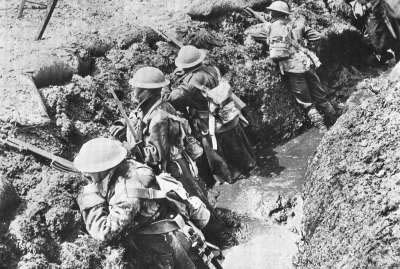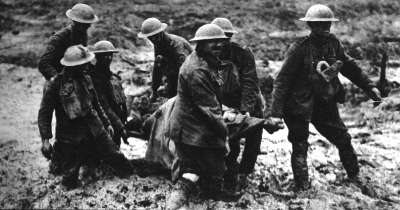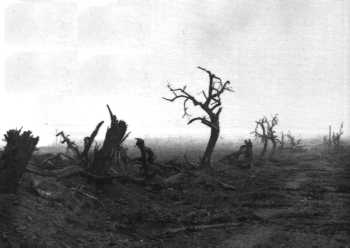(1893-1918)
poet, patriot, solider, pacifist

"My subject is War, and the pity of War. The Poetry is in the pity."

"My subject is War, and the pity of War. The Poetry is in the pity."
Wilfred Owen, one of approximately 9,000,000 millions fatalities in World War I, was killed in action on the Sambre Canal just seven days before the Armistice on November 4, 1918. He was caught in a German machine gun blast and killed. He was twenty-five years old.Teaching in continental Europe in 1915, Owen visited a hospital and became acquainted with many of the war's wounded. Deeply affected by these visits, the 22 year-old young Owen and he decided to enlist in the British Army. Owen described his decision to enlist in September, 1915: "I came out in order to help these boys--directly by leading them as well as an officer can; indirectly, by watching their sufferings that I may speak of them as well as a pleader can. I have done the first." Owen was injured in March 1917 and sent home; he was fit for duty in August, 1918, and returned to the front where he was killed shortly afterwards.
The bells were ringing on November 11, 1918, in Shrewsbury, England, to celebrate the Armistice when the doorbell rang at his parent's home, bringing them the telegram informing them their son was dead.

What passing-bells for those who die like cattle? |

The Parable of the Young Man and the Old
|
So Abram rose, and clave the wood, and went, And took the fire with him, and a knife. And as they sojourned, both of them together, Isaac the first-born spake, and said, My Father, Behold the preparations, fire and iron, But where the lamb for this burnt-offering? Then Abram bound the youth with belts and straps, And builded parapets the trenches there, And stretched forth the knife to slay his son. When lo! an angel called him out of heaven, Saying, Lay not thy hand upon the lad, Neither do anything to him. Behold, A ram, caught in a thicket by its horns; Offer the Ram of Pride instead of him. But the old man would not so, but slew his son, And half the seed of Europe, one by one.
|

ARMS AND THE BOY
|
Let the boy try along this bayonet-blade How cold steel is, and keen with hunger of blood; Blue with all malice, like a madman's flash; And thinly drawn with famishing for flesh.
Lend him to stroke these blind, blunt bullet-leads,
For his teeth seem for laughing round an apple.
|

DULCE ET DECORUM EST
|
Knock-kneed, coughing like hags, we cursed through sludge, Till on the haunting flares we turned out backs, And towards our distant rest began to trudge. Men marched asleep. Many had lost their boots, But limped on, blood-shod. All went lame, all blind; Drunk with fatigue; deaf even to the hoots Of gas-shells dropping softly behind.
Gas! GAS! Quick, boys!--An ecstasy of fumbling
In all my dreams before my helpless sight
If in some smothering dreams, you too could pace
"Sweet and fitting it is to die for one's country." (From Horace, Odes, III. ii. 13) |

AT A CAVALRY NEAR THE ANCRE
|
In this war He too lost a limb, But His disciples hide apart; And now the Soldiers bear with Him.
Near Golgotha strolls many a priest,
The scribes on all the people shove Wilfred Owen
|

Desolation of landscape of what once was a tree lined road to Guillemont
after extensive artillery bombardment during the Battle of the Somme.
STRANGE MEETING
|
It seemed that out of the battle I escaped Wilfred Owen |
![]()